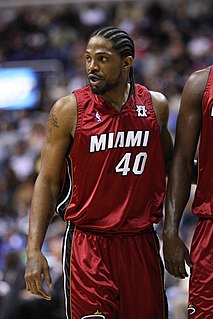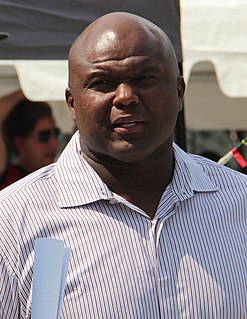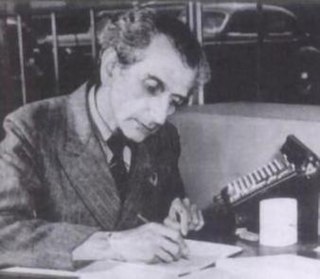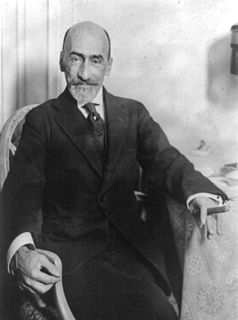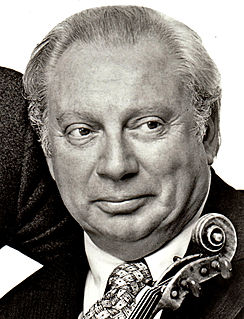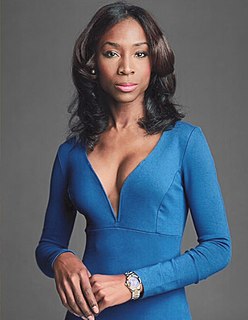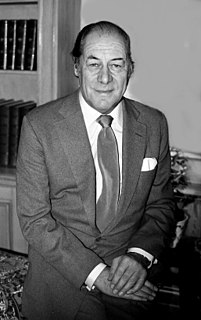Top 1200 Musical Talent Quotes & Sayings - Page 11
Explore popular Musical Talent quotes.
Last updated on November 15, 2024.
My fear of drama school is that the natural extraordinary but eccentric talent sometimes can't find its place in a drama school. And often that's the greatest talent. And it very much depends on the drama school and how it's run and the teachers. It's a different thing here in America as well because so many of your great actors go to class, which is sort of we don't do in England.
I think there's a huge parallel that affects my musical taste, and connections that have to do with my ethnic diversity and my musical tastes and the diversity of that. And it's interesting that, growing up on the circuit, it posed such a challenge, not only to me deciding what my identity was amongst my peers, but then on the music side, it was like trying to explain or convince people especially in the music industry that there was a place for what I was trying to do. But at the same time, I think it has a lot to do with timing and even me, like, understanding it.
Free improvisation, in addition to being a highly skilled musical craft, is open to use by almost anyone-beginners, children, and non-musicians. The skill and intellect required is whatever is available. Its accessibility to the performer is, in fact, something which appears to offend both its supporters and detractors....And as regards method, the improvisor employs the oldest in music-making...Mankind's first musical performance couldn't have been anything other than a free improvisation.
Every play is rhythmic control. If you want an audience to go on a journey, it's rhythmic control. You're crafting when they lean in, when they push back, when they breathe, when they surrender. It takes you probably five to six minutes to build trust with an audience. A musical you can build trust in three notes. Boom, boom, boom, you're instantly seduced. So musicals have this easy potency, but generally, in my opinion, they waste them, because a musical is incredibly hard to do.
I have a talent for silence and brevity. I can keep silent when it seems best to do so, and when I speak I can, and do usually, quit when I am done. This talent, or these two talents, I have cultivated. Silence and concise, brief speaking have got me some laurels, and, I suspect, lost me some. No odds. Do what is natural to you, and you are sure to get all the recognition you are entitled to.
I don't think talent has anything to do with inspiration. Inspiration creates talent. People prioritize innate talent too much. It gives them license to walk around and act like assholes. I think I straddle a line between being innately talented and having had to put in some work. You ever go to a party where there are a lot of creative people and they feel like they have license to just act any kind of way? I'm not really a moral person myself, but they just tend to never ever be sincere because they believe their art or the fact that they are artists makes them holy in some way.
She assumes that skill will guide her fingertips, that shapely lines will uncoil out of the pencil the moment she starts. Surely talent is a thing curled deep inside, just waiting to be exercised, and at the slightest invitation it will stretch, shake itself, make itself known? Talent, it seems, is not so insistent.
Talent is a gift, but our character is a choice. Talent is natural ability, our gift from God, but we have the power to determine our character. That power rests on a foundation consisting of the choices we make in life. And those choices almost always dictate the amount of trust others have in us, and to what level of leadership we rise.
Generally speaking, investing in yourself is the best thing you can do. Anything that improves your own talents; nobody can tax it or take it away from you. They can run up huge deficits and the dollar can become worth far less. You can have all kinds of things happen. But if you’ve got talent yourself, and you’ve maximized your talent, you’ve got a tremendous asset that can return ten-fold.
His lessons were chock-full of analogies for a variety of musical situations. Those little things were my favorites. 'No . . . that's too much vibrato. It's like putting bright red lipstick on a beautiful woman.' I always thought it was funny that when you broke a musical rule-like accenting a weak beat-he would turn his head away from you sharply, almost as though he were in pain. It's like you just slapped him in the face by being unmusical.
A dream role is a role that you can't even picture for yourself. Everything I've ever played I never pictured I would get a chance to play. It [has] gone beyond my wildest dreams. One thing I would love to do in my lifetime is a movie musical. I've wanted to do that since I was a kid. That's what made me interested in acting in the first place. I would do any type of musical, but I love the Harlem Renaissance era. I think a dream role in something that I probably can't see and I don't know when it's going to come.
As with all catalysts, the manager's function is to speed up the reaction between two substances, thus creating the desired end product. Specifically, the manager creates performance in each employee by speeding up the reaction between the employee's talent and the company's goals, and between the employee's talent and the customer's needs.
When people ask me if musical theatre should be taught in music colleges, I reply that there is no need. All anyone needs to study is the second act of La Boheme because it is the most tightly constructed piece of musical theatre that there is. It is practically director-proof: you can't stage it badly because it just works too well. If you can write La Boheme, you can write anything. I would also recommend studying Britten's Peter Grimes.
Popular music of the last 50 years has failed to keep in step with advances in musical theater, namely Stephen Sondheim. But the two have grown apart so that popular music is based more than ever on a rhythmic grid that is irrelevant in musical theater. In popular music, words matter less and less. Especially now that it's so international, the fewer words the better. While theater music becomes more and more confined to a few blocks in midtown.
Most of the arts, as painting, sculpture, and music, have emotional appeal to the general public. This is because these arts can be experienced by some one or more of our senses. Such is not true of the art of mathematics; this art can be appreciated only by mathematicians, and to become a mathematician requires a long period of intensive training. The community of mathematicians is similar to an imaginary community of musical composers whose only satisfaction is obtained by the interchange among themselves of the musical scores they compose.
Given her deafness, the auditory part of the brain, deprived of its usual input, had started to generate a spontaneous activity of its own, and this took the form of musical hallucinations, mostly musical memories from her earlier life. The brain needed to stay incessantly active, and if it was not getting its usual stimulation..., it would create its own stimulation in the form of hallucinations.
I was born with God-given gifts of very talented musical ability and exceptoinal physical coordination. I always needed prodding to practice piano, violin, cornet or French horn. I had to be pulled away from any athletic participation. Now, at 63, I look back on my athletic feats - All-American, All-Pro Quaterback, College and Pro Football Hall of Fame - and I can honestly say I would trade these all if I had been smart enough to pursue my musical career. YOUNG PEOPLE - don't make the same mistake.
I believe in talent. I know you're not supposed to believe in that anymore because you're supposed to believe if you just work hard you can do anything. That's how you succeed, maybe. But talent is something you're born with. You cannot acquire it by working hard, and you cannot lose it by lying around either.
It's nice for me to have a ballet as a kind of platform for creativity, because unlike modern dance or contemporary dance or downtown dance, ballet is formalized, and there's something orthodox about it that I like. I like that there's less emphasis on subversion and innovation. I actually think that my musical vernacular or my musical voice is also less inclined toward innovation and subversion. I think I'm a traditionalist.
Outsiders always look for a reason to explain why they are not inside. They never look in the mirror. Let's face it, the profession I'm in is a very simple and a very cruel one. There is no way that you can create a career for someone without talent and no way to stop a career of someone with talent.
I will gladly give lessons as a favor, particularly when I see that my student has talent, inclination, and anxiety to learn; but to be obliged to go to a house at a certain hour, or to have to wait at home for a pupil, is what I cannot do, no matter how much money it may bring me in. . . I am a composer and was born to be a Kapellmeister. I neither can nor ought to bury the talent for composition with which God in his goodness has so richly endowed me. . .
Talent is important. But the single most important ingredient after you get the talent is internal leadership. It's not the coaches as much as one single person or people on the team who set higher standards than that team would normally set for itself. I really believe that that's been ultimately important for us.
But then if you lied to a man about his talent just because he was sitting across from you, that was the most unforgivable lie of them all, because that was telling him to go on, to continue which was the worst way for a man without real talent to waste his life, finally. But many people did just that, friends and relatives mostly.
Before High School Musical, I wanted to be a nitty-gritty actress. And High School Musical came along, and, I was like, "Oh my God, fun!" But the more we did it, the more prude I became.... When I am around kids and they come up to me, of course I am going to act a certain way, but at the end of the day, I'm doing this for myself. I'm going to be doing movies kids can't watch.
One may not always know his purpose until his only option is to monopolize in what he truly excels at. He grows weary of hearing the answer 'no' time and time again, so he turns to and cultivates, monopolizes in his one talent which others cannot possibly subdue. Then, beyond the crowds of criticism and rejection, the right people recognize his talent - among them he finds his stage.
I thought the first two seasons of America's Got Talent were good. I think this one is the best one by a mile because they - you see the difference this year, I think, with the crowd being effectively the fourth judge. But most importantly, I think that these shows have to have a relevance because if you're not finding stars at the back of these shows - whether it's Idol or Got Talent - they're a complete waste of time.
There is a lot of incredible talent out there, however, talent alone is not enough. Being a great singer does not matter, if you are not singing great songs. Having great songs will not be obvious to record executives if they are not professionally produced. Consistently performing those songs extremely well is essential.
To have something to say is a question of sleepless nights and worry and endless ratiocination of subject - of endless trying to dig out the essential truth, the essential justice. As a first premise you have to develop a conscience and if on top of that you have talent so much the better. But if you have talent without the conscience, you are just one of many thousands of journalists.
A man is the prisoner of his power. A topical memory makes him an almanac; a talent for debate, disputant; skill to get money makes him a miser, that is, a beggar. Culture reduces these inflammations by invoking the aid of other powers against the dominant talent, and by appealing to the rank of powers. It watches success.
The general unreliability of all information presents a special problem in war: all action takes place, so to speak, in the twilight, which, like fog or moonlight, often tends to make things seem grotesque and larger than they really are. Whatever is hidden from full view in this feeble light has to be guessed at by talent, or simply left to chance. So once again for the lack of objective knowledge, one has to trust to talent or to luck.
The whole point is to take from our native culture and from contemporary culture without using one art form to mimic the other, so that our native identity remains the native identity, the contemporary identity remains the contemporary identity, and the mixing of these two musical identities creates a third musical identity.
Yeah, for me there are other challenges that aren't musical too. Like you just don't have as many people to feed off of energy wise, you are loading in and out and you are driving yourself more. Most of the challenges that count are the musical ones. I don't know why people come out to the shows, but I never think that it is to hear me play the guitar and sing. I think it must be in the writing and the presentation, which are the areas that I feel most comfortable.
Some people seem to have extreme natural wiring - a talent that seems to come out of nowhere. Like a music savant or prodigy. The uplifting news, though, is that many talented people don't have such natural wiring - but they forge a talent through thousands of hours of what's known as deliberate practice or deliberate performance.
There's a difference between talent and skill. You might have writing talent, but skill is learned. You have to practice. I remain teachable. I was sure that I didn't know everything. People who work with me will tell you I don't think I know everything. I watch people sink around me thinking that they knew everything.
A man with a talent does what is expected of him, makes his way, constructs, is an engineer, a composer, a builder of bridges. It's the natural order of things that he construct objects outside himself and his family. The woman who does so is aberrant. We have to expiate for this cursed talent someone handed out to us, by mistake, in the black mystery of genetics.
I can ask someone to let me into all aspects of their life for several years, but people have got to have that gift: that courage and that talent for opening their lives to the camera. Being candid is a gift, and that's what the audience responds to. Part of it is me asking, and part of it is just their inherent talent, which is what you are looking for when you make documentaries - people that are really going to let you in on what they are going through.
Originally I had a block about appearing in a musical. I went to a voice teacher for a while, but that did no good. My range is about one and a half notes. I ended up talking the musical numbers, which was revolutionary at the time. The lyrics are extremely intricate. They move along like a precisely acted scene. If you miss a word - heaven help you - the orchestra rattles past like an express train, and you've got to run like the devil to catch up.
Nothing in this world can take the place of persistence. Talent will not: nothing is more common than unsuccessful men with talent. Genius will not; unrewarded genius is almost a proverb. Education will not: the world is full of educated derelicts. Persistence and determination alone are omnipotent.




